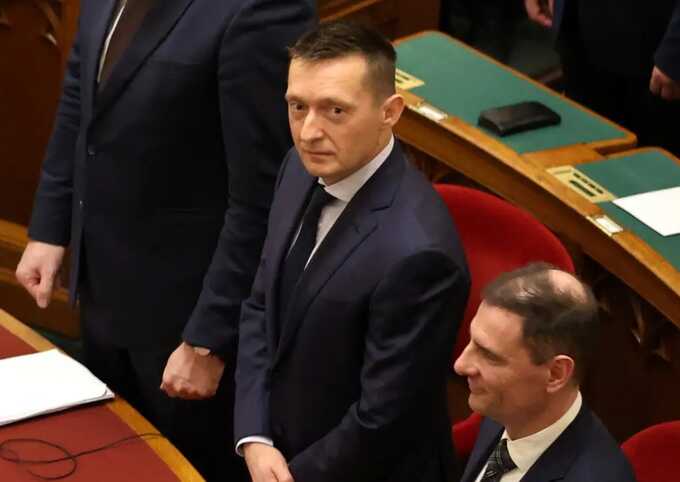US sanctions Hungarian official over corruption
The US sanctioned a top Hungarian official and close ally of Prime Minister Victor Orban over corruption allegations.
The United States sanctioned a key ally of Hungarian Prime Minister Viktor Orbán, accusing him of diverting public funds to enrich himself and his political network. The move, which Budapest denounced as politically motivated, comes as Hungary faces heightened scrutiny over its democratic backsliding.
Antal Rogán, one of Hungary’s most influential politicians and a minister in Orbán’s government, will have any U.S.-based assets frozen and face restrictions on engaging with individuals or institutions in the United States. The U.S. Treasury warned that others risk similar sanctions if they associate with him.
“These sanctions are part of the United States’ commitment to combating corruption,” the U.S. Treasury said in a statement. “Rogán exploited his position to allocate public resources and contracts to himself, his loyalists, and the ruling Fidesz party.”
Outgoing U.S. Ambassador to Hungary, David Pressman, described Rogán as “a primary architect, implementer, and beneficiary of this system of corruption.” Pressman’s remarks highlighted Rogán’s central role in a series of schemes that allegedly diverted public funds for personal and political gain.
The Hungarian government swiftly rejected the allegations.
Foreign Minister Péter Szijjártó called the sanctions “personal revenge” by Ambassador Pressman, accusing him of representing the unfriendly U.S. administration. “It’s good that in a few days, the United States will be led by people who see our country as a friend, not an enemy,” Szijjártó said in reference to Donald Trump’s upcoming inauguration as U.S. president.
Defending Rogán, former Trump-era U.S. Ambassador David Cornstein criticized the sanctions, calling them evidence of the current administration’s “hostile stance toward Hungary.”
The Hungarian investigative outlet and OCCRP partner Átlátszó detailed on Thursday Rogán’s alleged involvement in several scandals, which may have led to the sanctions.
One major controversy centers on a residency bond scheme initiated in 2012 during Rogán’s tenure as chairman of the Parliamentary Economic Committee. The program allowed foreign nationals to purchase bonds granting permanent residency in Hungary and visa-free travel within the Schengen Area. The scheme has faced accusations of a lack of transparency and favoritism.
Rogán has also been linked to questionable practices involving the National Communications Office (NKOH), which oversees government communication contracts. Critics allege that Rogán used his influence to funnel lucrative contracts to allies, creating a propaganda apparatus controlled by Fidesz.
Another scandal involves Rogán’s father-in-law, who reportedly purchased for a relatively small amount of money a share in an agricultural consultancy business shortly after the company received a non-refundable EU grant.
Tuesday’s sanctions coincide with the conclusion of Hungary’s six-month EU presidency, during which the country has faced international criticism for limiting press freedom, undermining democratic institutions, and maintaining close ties with Russia.
As Rogán faces potential fallout from these sanctions, the move signals Washington’s broader commitment to holding foreign officials accountable for corruption, even amid shifting political landscapes.
Read more similar news:
Comments:
comments powered by Disqus
































